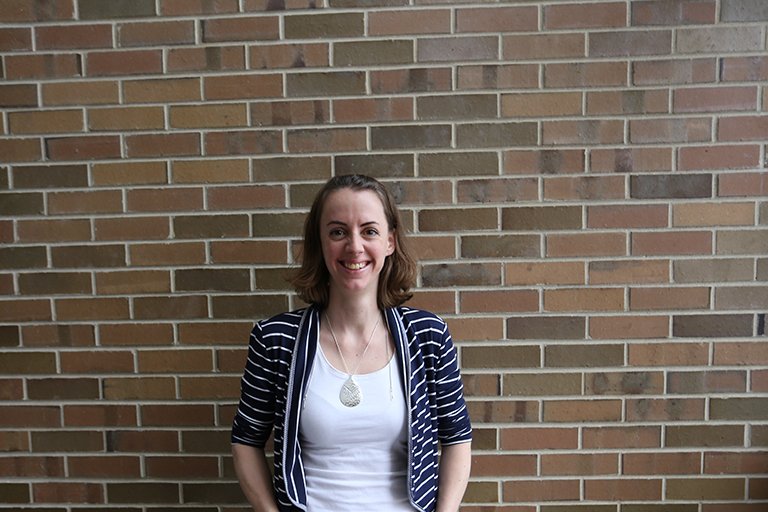If you own a smartphone, laptop, smartwatch and tablet, and often find yourself using up to three of those devices at once, chances are you’ve embraced the digital revolution and the nifty gadgets that come with it. Technology has provided us with endless ways to make our lives easier, from being able to ditch our clunky alarm clock radios to tracking every step we take from our wrists. But what about the people that technology has left behind?
Assistant Professor in the Department of Media and Information and Assistant Director of the Quello Center Bianca Reisdorf studies these digital inequalities. With a background in Media Sociology from the University of Bielefeld and doctoral training from the University of Oxford Internet Institute, she has spent her academic career researching how technological disparities affect people and finding new ways to address these problems.
“In an increasingly connected world, we seem to forget about the people that are not connected or are under-connected,” said Reisdorf. “I think it’s important that we don’t forget about those people, even though it’s easy to do.”
Rehabilitating Parolees Through Technology Training
In an ongoing project, Reisdorf will be focusing on the technological access of U.S. prisoners. When a person is incarcerated, they are completely cut off from the internet and most other technologies. While this policy is due to potential risks and security issues, it becomes a major problem for the approximately 95 percent of inmates who eventually get released. They are forced to live in a society that revolves around technology without the updated skills needed to seamlessly assimilate. This lack of digital savvy often inhibits parolees from being able to secure a quality job, especially since they are already set back by their criminal record.
“We’re not advocating for a complete free access of the internet,” said Reisdorf. “However, there is a middle ground that we can get to where we can still reap the benefits of it and help prisoners get to a point where when they come back out, they have the skills to find paid work.”
The inspiration for this project began when Reisdorf was a faculty member at the University of Leicester in the U.K. She walked past a prison every day on her way to work and one day, a lightbulb went off. After realizing there was no research literature to help her form background knowledge on the topic, she started her own line of inquiry by launching a study with her colleague, Yvonne Jewkes, a professor of criminology.
The pair conducted research on the internet and technological access available to U.K. prisoners. While some facilities had begun trialing Skype visits on a restricted basis, and most prisons offered basic information communication technology (ICT) classes focusing on applications such as Microsoft Office, the prisoners’ access was extremely limited.
By gathering data through one-on-one and group conversations with inmates, wardens, prison guards and IT instructors, the two found that there was both interest in and fear of technology among prisoners.
“The longer people had been incarcerated, the more worried they were about having to use technologies,” Reisdorf said. “We see that people who generally don’t use technologies, like older people, are quite fearful about it. But [for the prisoners], we also saw a feeling of urgency and necessity. They felt like ‘I need to get on board with this, because this is just how the world is now.’”
A Focus on Research that Impacts Policy
To further explore what kind of role communication technologies play in the process of prisoners reentering society, Reisdorf plans to focus the next study on parolees and parole officers in the U.S. She is collaborating with faculty and graduate students from the College of Communication Arts and Sciences and other colleges within Michigan State University. The team will research what kinds of technological barriers returning citizens experience and how parole officers use communication technologies to work with parolees. They will begin conducting fieldwork on the project this spring.
Their goal is to combine the findings from Reisdorf’s U.K. study with the data they will gather in their study of U.S. parolees to propose an intervention in prison policies. They hope to implement technology in the rehabilitation and training process, including a robust ICT curriculum that will prepare prisoners for jobs. Although she acknowledges that this project is controversial, Reisdorf believes technology training is critical to the successful reentry of prisoners into society.
The team hypothesizes that the people that go to prison in the first place are the same people that are under-connected even before they are incarcerated: marginalized groups with lower incomes and educational qualifications living in urban areas. This study will provide a closer look into the framework of digital inequalities and why they persist.
Reisdorf came to Michigan State specifically to work at the Quello Center. With projects such as how social media is impacting international political opinion to studying digital inequalities in Detroit neighborhoods, she was interested in doing research that was relevant and applicable to policy.
“The core reason why I wanted to become an academic was to help ease some of the issues in society through informing policy makers on best ways forward based on high-quality research,” Reisdorf said. “MSU was generally attractive to me due to the fantastic work being done in ComArtSci and specifically in Media and Information. There are a lot of fantastic faculty here at MSU, which is great for collaborations and producing outstanding research.”
The team involved in this project includes co-principal investigators R.V. Rikard, Media and Information Senior Research Associate, and Jennifer Cobbina, Criminal Justice Associate Professor. Other members of the interdisciplinary team are Criminal Justice Professor Thomas Holt, Social Work Professor Sheryl Kubiak, Information and Media doctoral student Julia DeCook and Criminal Justice doctoral student Ashleigh LaCourse.
By Rianna N. Middleton
